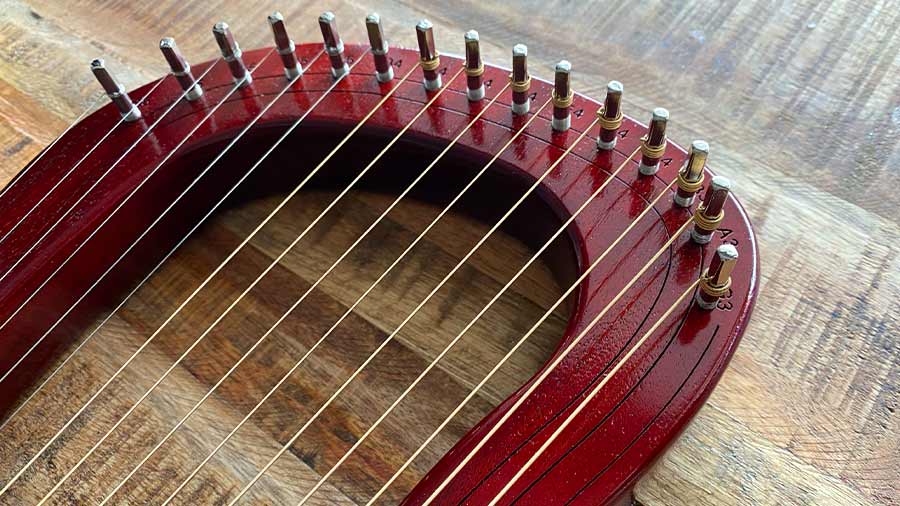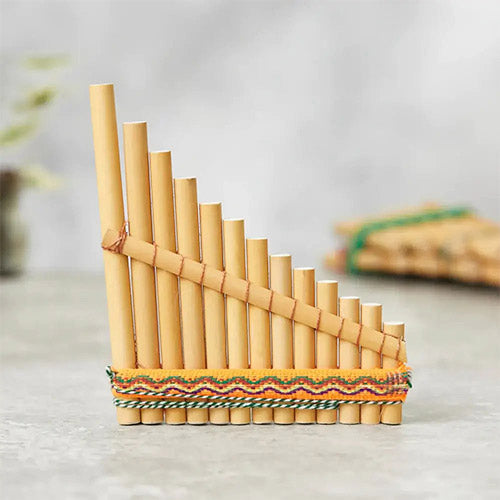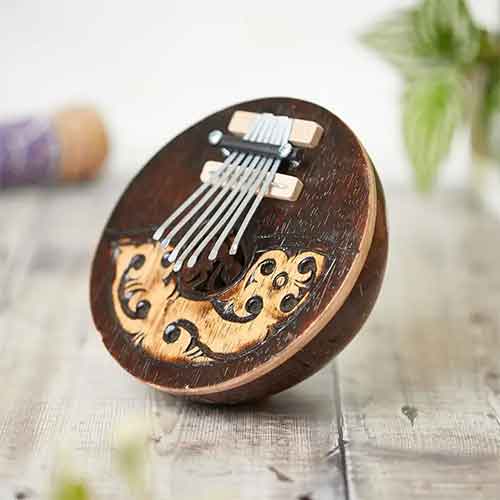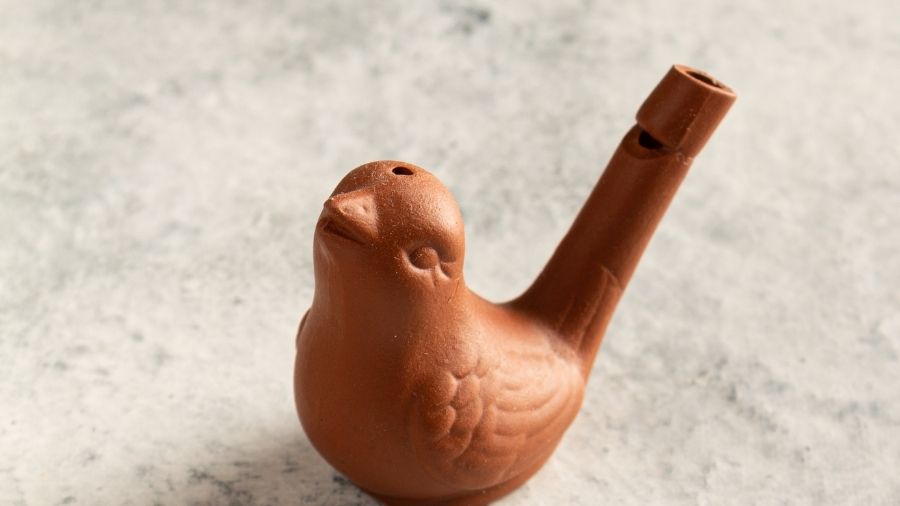The lyre harp is a versatile musical instrument made from solid wood. It is renowned for its stunning sunrise sunburst design and is perfect for beginner harp players. In this comprehensive guide, we will explore the various aspects of playing the lyre harp, including its construction, tuning, and playing techniques. Whether you are a beginner or an experienced musician, this guide will provide you with the knowledge and skills to play the lyre harp with confidence.
The Construction of the Lyre Harp
Gecko Music makes our lyre harps from solid maple or mahogany wood, which ensures its durability and exceptional sound quality. With its irregular oval shape and a size of 400mm x 250mm x 35mm, it is a compact and portable instrument, making it ideal for musicians on the go. The harp weighs approximately 1.2kg, making it lightweight and easy to carry.
Tuning the Lyre Harp
Tuning the lyre harp is essential for optimal sound quality and can be done using the included tuning tool to adjust the string tension. Be careful not to overtighten the strings to avoid snapping and keep the harp away from damp conditions, which can affect tuning. To tune, start by plucking the middle string and adjusting its tension until it matches the desired pitch, then move on to the adjacent strings, repeating the process for all 15 strings to ensure they are in tune with each other.
Playing Techniques for the Lyre Harp

Playing the lyre harp involves fingerpicking and strumming. For fingerpicking, pluck individual strings with your fingertips to create varied tones and melodies. Strumming involves using a pick or thumb to sweep across multiple strings, producing a fuller sound ideal for chords.
Exploring the Lyre Harp's Sound
The Cherry Lyre Harp with 15 strings by Gecko Music is crafted from solid mahogany wood, offering exceptional design and craftsmanship. It comes with a carry case, replacement strings, and a tuning tool, making it ideal for all skill levels. With origins in ancient Greece and a pickup slot for connecting to an amp, it provides portability and versatility. The sound is amplified through the body’s sound hole, enhancing resonance and projection to fill a room with beautiful melodies. Experiment with different playing techniques to unlock the lyre harp’s full sound potential.
Popular Songs to Play on the Lyre Harp
The versatility of the lyre harp allows you to play a wide range of songs. Whether you prefer classical, folk, or contemporary music, the lyre harp can accommodate your musical preferences. Some popular songs well-suited for the lyre harp include "Canon in D" by Johann Pachelbel, Greensleeves", a traditional English Folk Song, and Hallelujah" by Leonard Cohen. Feel free to explore different genres and experiment with your favourite songs to showcase the unique sound of the lyre harp.
Where to buy the Lyre Harp?
We love the Lyre Harp by Gecko Music because it is a crafted instrument made from solid mahogany wood. It comes as a complete package, including a carry case, replacement strings, and a tuning tool, ensuring convenience for musicians at all levels. Its versatility makes it suitable for beginners and professionals.
Lyre Harp - Frequently Asked Questions
What is the best type of lyre harp?
Typically, we advise beginners seeking to learn through YouTube tutorials and perform popular compositions to consider starting with a 15-string lyre harp. Its compact size and user-friendly design make it easy to handle and navigate. Alternatively, the 21-string heart-shaped lyre remains a favored option among musicians for its distinctive design and extended range of notes.
Is the lyre harp easy to learn?
What is special about the harp?
Why is the harp a good instrument?
Research indicates that listening to harp music can lower heart rate and increase oxygen levels. It's also been found to reduce feelings of pain and anxiety while enhancing positive emotions. Harp music creates a soothing environment, fostering feelings of comfort, warmth, and safety.
What is the price of a lyre harp?
These Lyre Harps range from £100- £120 depending what kind of Lyre Harp and where you purchase them from.
How to care for your lyre harp?
Proper care and maintenance are essential to ensure the longevity of your lyre harp. To keep your instrument in optimal condition, wipe the harp with a damp cloth to remove any dust or debris. Avoid exposing the harp to damp conditions, as it can affect the tuning of the strings.
Store the harp in the provided carry case after each use to protect it from scratches and damage. Regularly check the tension of the strings and make adjustments as needed. By following these care instructions, you can enjoy the beautiful sound of your lyre harp for years to come.













